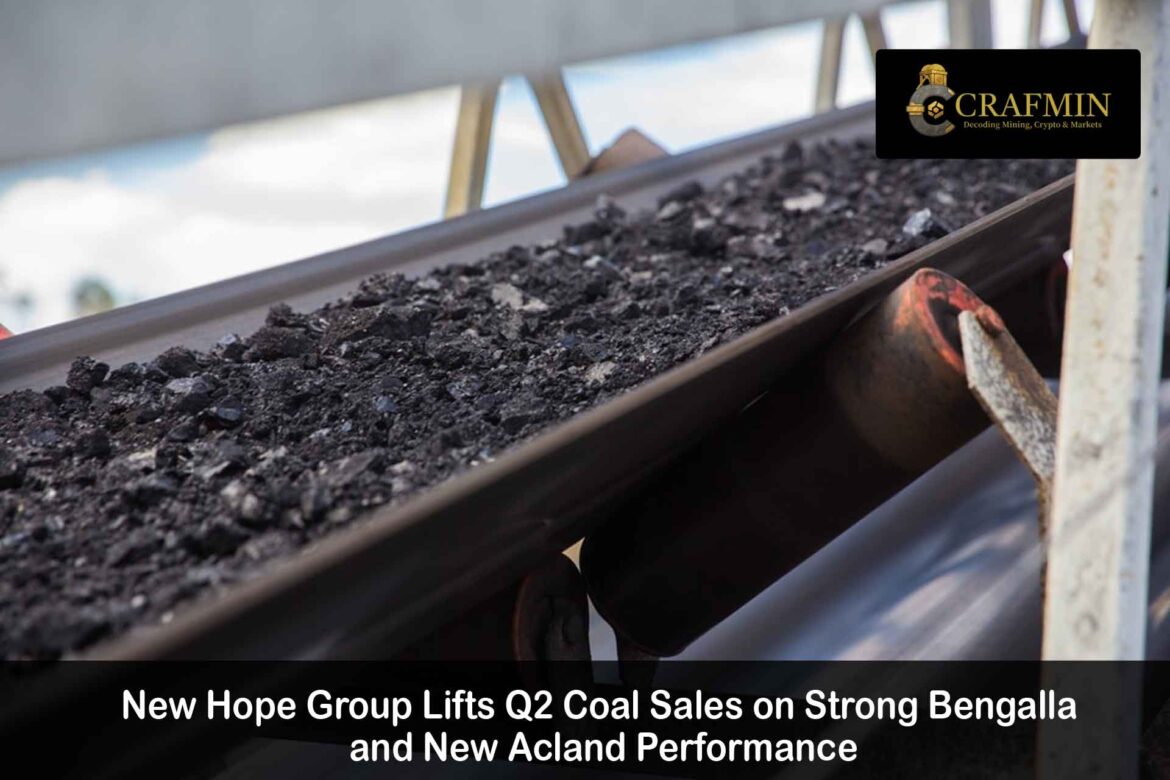Quarterly Surge in Coal Sales Reinforces New Hope Group’s Momentum
New Hope Group has delivered a robust quarterly performance, buoyed by heightened coal sales from its flagship operations in New South Wales and Queensland. The latest quarterly report highlights an impressive uplift in production and sales from the Bengalla coal mine and the New Acland coal mine, pushing total coal sales beyond expectations.
This uptick comes at a time when global thermal coal markets remain volatile but rewarding for efficient producers. With 688,000 tonnes of coal sold from the New Acland coal mine and over 2 million tonnes (2Mt) from Bengalla, New Hope has positioned itself as a steady performer amid sector headwinds.
Bengalla Coal Mine Drives Sales with Stable Output
The Bengalla coal mine, located in the Hunter Valley region of New South Wales, once again proved its strategic value. During the quarter, Bengalla produced over 2Mt of coal sales—an increase aligned with its ramp-up schedule and consistent performance.
Run-of-mine (ROM) coal production remained strong, contributing significantly to the Group’s inventory. Additionally, the prime waste movement from Bengalla during the quarter reached 11.9 million bank cubic metres (Mbcm), reflecting disciplined operations and optimal strip ratio planning.

Aerial view of Bengalla coal mine – Source: Flickr
New Acland Coal Mine Recovers Pace
In Queensland, the New Acland coal mine’s resurgence following Stage 3 approval has been pivotal. The mine recorded 688,000 tonnes in coal sales this quarter—a substantial achievement given its restart in late 2023. ROM coal production at New Acland remained in line with ramp-up targets.
Prime waste movement was reported at 4.4Mbcm, and the strip ratio has started to normalize as mining extends further into the Manning Vale East pit. Operational progress at this pit is being closely monitored as it holds long-term strategic value for New Hope’s Queensland footprint.

Coal Inventory Builds as Sales Strategy Remains Flexible
The company has strategically allowed ROM coal inventory to build across both sites, reflecting a flexible and market-aligned sales strategy. This provides operational buffer while enabling opportunistic sales in response to favourable price spikes.
This approach was evident during the quarter, with New Hope optimizing sales to high-value Asian markets despite port and rail constraints impacting shipment timing.
Financial Outlook: Cost Discipline and Production Efficiency
Cost control and operational efficiency remained central to the quarterly narrative. By balancing ROM production with prime waste movement and reducing overburden variability, New Hope has kept unit costs stable despite inflationary pressure.
The Group’s strong cash position also provides confidence that capital can be reinvested in productivity improvements and growth projects. Investors will be closely watching the FY25 guidance in the next update, especially around capex at New Acland and potential exploration upside in New South Wales.
Market Context: Coal Prices and Export Demand
Thermal coal pricing remained resilient during the quarter, driven by continued demand from Asia and constrained supply out of Indonesia. New Hope leveraged this window effectively, focusing on delivery consistency and blending quality.
The company’s marketing strategy continues to prioritize premium coal markets in Japan, South Korea, and Taiwan—markets where long-term relationships allow for better pricing outcomes.

Thermal coal price trend graph (Q1 2024 – Q2 2025) – Source: Trading Economics / World Bank
Conclusion: New Hope Positioned for Sustainable Growth
New Hope Group’s strong quarterly report underscores the value of disciplined operations at both the Bengalla and New Acland coal mines. With a combined sales figure exceeding 2.6Mt, rising ROM inventory, and sound waste management, the company demonstrates its ability to scale efficiently in a competitive global market.
As mining production ramps further and key infrastructure upgrades come online, New Hope remains a stock to watch in Australia’s coal sector.
For more, read the full quarterly summary on Australian Mining.

